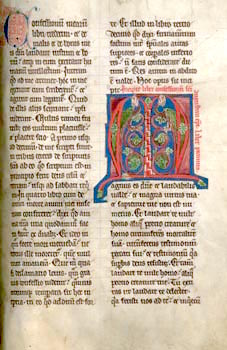
An autobiography, sometimes informally called an autobio, is a self-written biography of one's own life.
In publishing, a note is a brief text in which the author comments on the subject and themes of the book and names supporting citations. In the editorial production of books and documents, typographically, a note is usually several lines of text at the bottom of the page, at the end of a chapter, at the end of a volume, or a house-style typographic usage throughout the text. Notes are usually identified with superscript numbers or a symbol.

Brian O'Nolan, his pen name being Flann O'Brien, was an Irish civil service official, novelist, playwright and satirist, who is now considered a major figure in twentieth-century Irish literature. Born in Strabane, County Tyrone, he is regarded as a key figure in modernist and postmodern literature. His English language novels, such as At Swim-Two-Birds and The Third Policeman, were written under the O'Brien pen name. His many satirical columns in The Irish Times and an Irish-language novel, An Béal Bocht, were written under the name Myles na gCopaleen.

At Swim-Two-Birds is a 1939 novel by Irish writer Brian O'Nolan, writing under the pseudonym Flann O'Brien. It is widely considered to be O'Brien's masterpiece, and one of the most sophisticated examples of metafiction.

The Dalkey Archive is a 1964 novel by the Irish writer Flann O'Brien. It is his fifth and final novel, published two years before his death. It was adapted for the stage by Hugh Leonard in 1965 as The Saints Go Cycling In.
"The Approach to Al-Mu'tasim" is a fantasy short story written in 1935 by Argentine writer Jorge Luis Borges. In his autobiographical essay, Borges wrote about "The Approach to Al-Mu'tasim", "it now seems to me to foreshadow and even to set the pattern for those tales that were somehow awaiting me, and upon which my reputation as a storyteller was to be based."
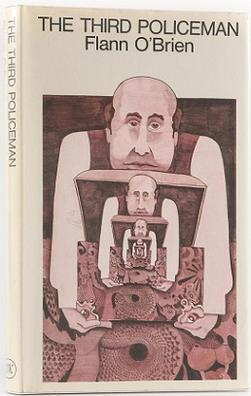
The Third Policeman is a novel by Irish writer Brian O'Nolan, writing under the pseudonym Flann O'Brien. It was written in 1939 and 1940, but after it initially failed to find a publisher, the author withdrew the manuscript from circulation and claimed he had lost it. The book remained unpublished at the time of his death in 1966. It was published by MacGibbon & Kee in 1967.
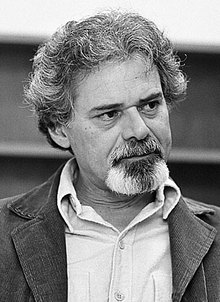
Gilbert Sorrentino was an American novelist, short story writer, poet, literary critic, professor, and editor.
Dalkey Archive Press is an American publisher of fiction, poetry, foreign translations and literary criticism specializing in the publication or republication of lesser-known, often avant-garde works. The company has offices in Funks Grove, Illinois, in Dublin, and in London. The publisher is named for the novel The Dalkey Archive, by the Irish author Flann O'Brien. It is owned by nonprofit publisher Deep Vellum.

Harry Mathews was an American writer, the author of various novels, volumes of poetry and short fiction, and essays. Mathews was also a translator of the French language.
Jamie O'Neill is an Irish author. His critically acclaimed novel, At Swim, Two Boys (2001), earned him the highest advance ever paid for an Irish novel and frequent praise as the natural successor to James Joyce, Flann O'Brien and Samuel Beckett. He is currently living in Gortachalla in County Galway, having previously lived and worked in England for two decades.
Fiction writing is the composition of non-factual prose texts. Fictional writing often is produced as a story meant to entertain or convey an author's point of view. The result of this may be a short story, novel, novella, screenplay, or drama, which are all types of fictional writing styles. Different types of authors practice fictional writing, including novelists, playwrights, short story writers, radio dramatists and screenwriters.
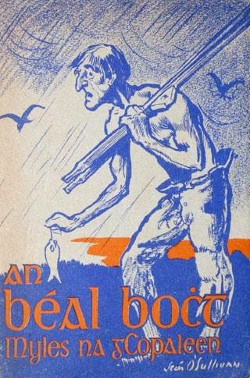
An Béal Bocht is a 1941 novel in Irish by Flann O'Brien, published under the pseudonym "Myles na gCopaleen". It is regarded as one of the most important Irish-language novels of the twentieth century. An English translation by Patrick C. Power appeared in 1973. Stan Gebler Davies wrote: "The Poor Mouth is wildly funny, but there is at the same time always a sense of black evil. Only O'Brien's genius, of all the writers I can think of, was capable of that mixture of qualities."
Roger Boylan is an American writer who was raised in Ireland, France, and Switzerland. His Irish novel Killoyle, called "a virtuoso performance" by Publishers Weekly, is published by Dalkey Archive Press. His second Irish novel, The Great Pint-Pulling Olympiad, is published by Grove Press; the Village Voice said it resembled the work of James Joyce "at his comically prolix best." Both novels were translated into German by the award-winning German translator and author Harry Rowohlt. The third volume in the Killoyle trilogy, The Maladjusted Terrorist, was published in German in 2007, and the entire Killoyle trilogy was reissued as a boxed set that year by the Swiss publisher Kein und Aber.
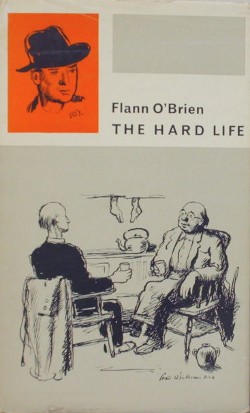
The Hard Life: An Exegesis of Squalor is a comic novel by Flann O'Brien. Published in 1961, it was O'Brien's fourth novel and the third to be published. Set in turn-of-the-century Dublin, The Hard Life is a satirical Bildungsroman that deals with the education and upbringing of the narrator, Finbarr, and his brother Manus. The novel offers a mocking critique of certain representatives of the Roman Catholic Church, the development of Irish identity and the functioning of formal education. The novel was initially very popular, with its first print run selling out within forty-eight hours, and it has been republished several times in Ireland, Britain and the United States, both as a stand-alone work and, most recently, in Flann O'Brien: The Complete Novels.

Ist das Ihr Fahrrad Mr O’Brien? is a German biographical radio play about life, works and legacy of Irish modernist writer Brian O'Nolan.

The Little Red Chairs is a 2015 novel by Irish author Edna O'Brien, who was 85 at the time of publication. The novel is O'Brien's 23rd fictional publication.
Tynset is a lyrical work of prose published in 1965 by the German writer Wolfgang Hildesheimer. Often described as a novel, although not by Hildesheimer himself, it is a monologue of the thoughts of an insomniac over the course of a sleepless night. The central theme of Tynset, one of Hildesheimer's major works, is resignation in face of an absurd world. The first-person narrator from Tynset is also found in other works by Hildesheimer, and displays similarities with Hildesheimer himself. The work is named after Tynset Municipality in Norway, which the narrator imagines travelling to.
Niall Sheridan (1912–1998) was an Irish poet, fiction-writer, and broadcaster, remembered primarily for his friendships with better-known Irish writers Brian O'Nolan and Donagh MacDonagh.

Unreal Unearth is the third studio album by Irish musician Hozier, released on 18 August 2023. It contains the singles "Eat Your Young" and "Francesca", along with the song "All Things End". Hozier toured Ireland, the UK, North America, Australia, and New Zealand in support of the record from June 2023 to November 2024. The album received generally positive reviews from critics, and debuted at number one on the Irish and UK charts.












